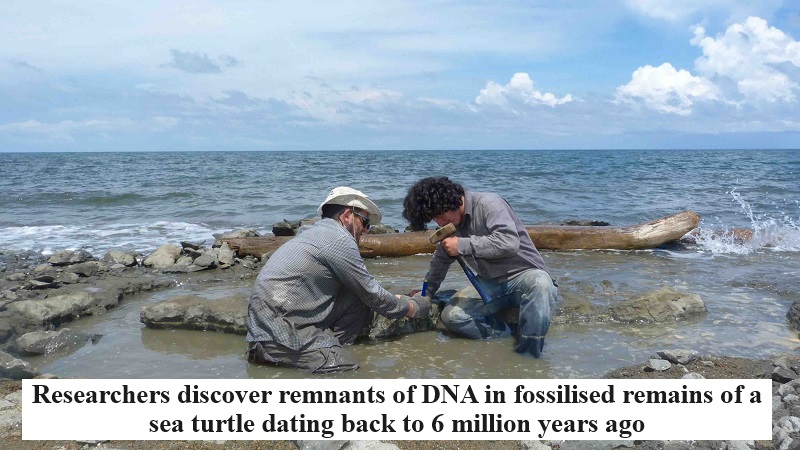
Researchers have made an extraordinary discovery by identifying remnants of DNA in fossilized remains of a sea turtle dating back to 6 million years ago. This remarkable find sheds light on the genetic makeup of an ancient vertebrate and is a rare occurrence in paleontology.
The fossilized turtle was excavated along the Caribbean coast of Panama in 2015 and consists of a partial skeleton with a relatively complete carapace (the turtle’s shell). It is estimated that the turtle would have measured around a foot (30 cm) in length when it was alive.
The lead author of the study, paleontologist Edwin Cadena, explained that some bone cells known as osteocytes were exceptionally well-preserved in the fossil. Within a few osteocytes, the researchers discovered preserved cell nuclei that reacted to a chemical solution, indicating the presence of remnants of DNA.
It is important to note that the researchers did not extract DNA from the fossil; instead, they identified traces of DNA within the nuclei. DNA contains genetic information crucial for an organism’s development and functioning.
In most cases, DNA deteriorates over time, but it can be preserved in specific conditions. Previously, researchers reported the discovery of DNA remnants in plants and microbes dating back approximately 2 million years, found in sediment at the remote northernmost point in Greenland.
Cadena noted that apart from this turtle fossil, similar DNA remnants have only been found in two older vertebrate fossils: Brachylophosaurus, a dinosaur that lived about 78 million years ago, and Tyrannosaurus, which lived about 66 million years ago. DNA remnants have also been identified in ancient insects dating back tens of millions of years.
The turtle in question belongs to the same genus, Lepidochelys, as two of the seven existing species of sea turtles globally—the olive ridley and the Kemp’s ridley, which is the world’s smallest sea turtle. This discovery provides valuable insights into the genetic history of these ancient sea turtles and their relationship to modern species.

Post Your Comments